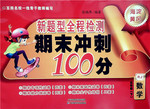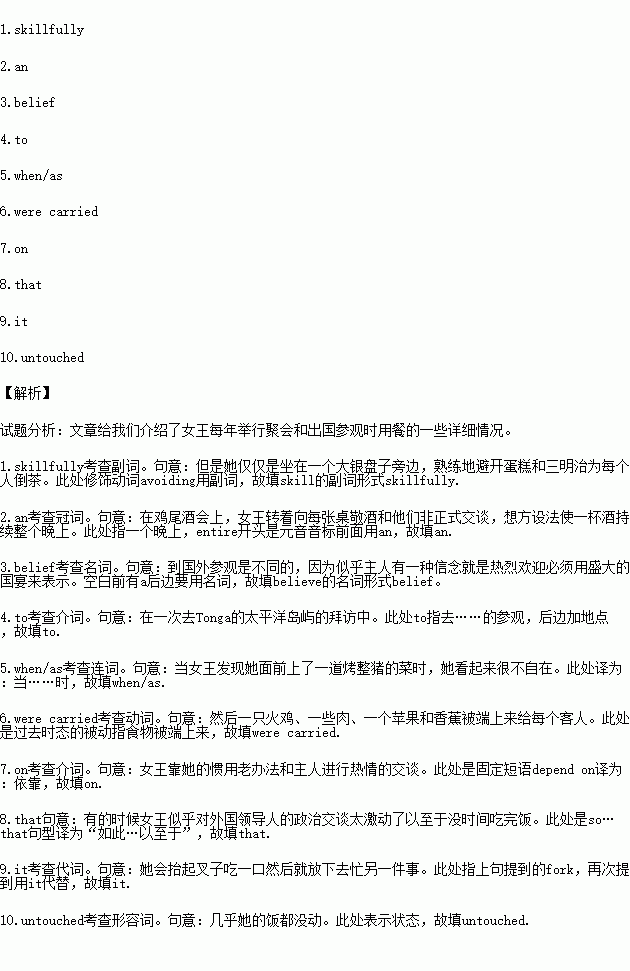题目内容
阅读下面材料,在空白处填入适当的内容(不多于3个单词)或括号内单词的正确形式。
Several times each year the Queen gives afternoon tea parties. But she simply sits beside a big silver plate, pouring cups of tea for everyone and 1. (skill) avoiding the cakes and sandwiches.
At cocktail parities the Queen moves from group to group, chatting informally, and manages to make one glass of drink last 2. entire evening.
Tours abroad are difficult because hosts seem to have a 3. (believe) that the warmth of their welcome must be shown with wonderful state banquets (宴会). But the Queen has perfected the art of appearing to enjoy her meal without actually eating much.
During one visit 4. the Pacific islands of Tonga, a specially – prepared dinner was arranged in her honor. The Queen looked uneasily at her plate 5. she discovered a whole roast pig was her serving. Then a turkey, some meat, an apple and bananas 6. (carry) in for each guest. But she depended 7. her old favorite trick of talking with her host, King Tupou IV, and carrying on a warm conversation.
Sometimes the Queen will seem so carried away by foreign leader’s political chat 8. she simply never has time to finish a meal before it is time to get up and make her speech. She will lift her fork to swallow a mouthful, and then put9. down again to make another point, leaving almost all of her meal 10. (touch).
 新题型全程检测期末冲刺100分系列答案
新题型全程检测期末冲刺100分系列答案
